
Professor Alan Winfield (Chair)
Co-founder Bristol Robotics Lab, University of the West of England; Bristol Visiting Professor, the University of York; Associate Fellow of the Cambridge Centre for the Future of IntelligenceAlan is a Professor of Robot Ethics, and co-founded the Bristol Robotics Laboratory where his research is focused on the science, engineering and ethics of cognitive robotics. He is also a Co-investigator on RoboTIPS Fellowship overseeing the technical development of the Ethical Black Box and explainer system for social robots. He sits on the executive of the IEE Standards Association Global Initiative on Ethics of Autonomous and Intelligent Systems, and chaired the Working Group which drafted new IEEE standard 7001-2021 on Transparency of Autonomous Systems. He has published over 270 works, including Robotics: A Very Short Introduction (Oxford University Press, 2012). He also lectures widely on robotics, presenting to both academic and public audiences, and has a blog here.

Professor Nigel Crook
Oxford Brookes; Founder and Co-Director of the Institute for Ethical Artificial IntelligenceNigel is the founder and Co-Director of the Institute for Ethical Artificial Intelligence (AI) developing ethical and trustworthy intelligent software solutions for business, organisations and society. Nigel also works as the Associate Dean: Research and Knowledge Exchange (ADRKE) leading and managing the implementation of the University Research and Knowledge Exchange strategy throughout the Faculty of Technology, Design and Environment.
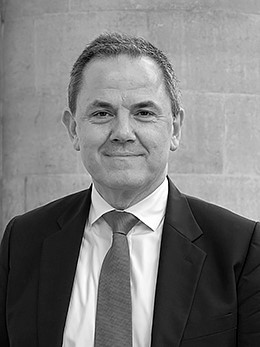
Professor John Tasioulas
Director, Institute for Ethics in AI; Professor of Ethics and Legal Philosophy at the University of OxfordJohn is the inaugural Director of the Institute for Ethics in AI, and Professor of Ethics and Legal Philosophy at the University of Oxford. His main research insterests are Human rights, theories of morality; democracy and the rule of law; the ethical limits of law; philosophy of crime and punishment; philosophy of international law; ethics of Artificial Intelligence; global health justice.
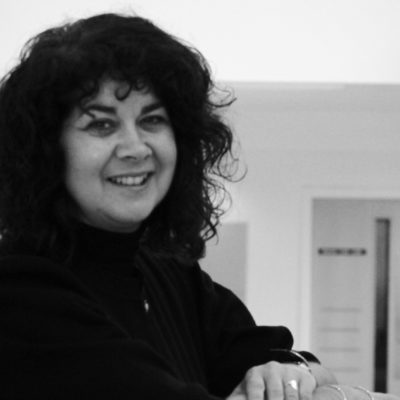
Professor Sally Randles
Chair of Sustainability and Innovation, Manchester Metropolitan University.Sally is Chair of Sustainability and Innovation within the Faculty of Business and Law at Manchester Metropolitan University, which she combines with her role as Faculty Lead for Sustainability. Sally is an Associate Fellow within the Manchester Institute of Innovation Research (MIOIR), University of Manchester, UK; CORD Fellow at the Centre for Organisations Research and Design, Arizona State University, USA; and Gordon Fellow at the University of Cape Town Graduate School of Business, South Africa. During her academic career she has held Work Package and PI leadership roles on a number of EU funded projects within Horizon 2020, ERDF and INTERREG programmes. Her current research spans transformative sustainability, circular economy and responsible innovation, focusing on the institutionalisation of responsible innovation from an organisational perspective.
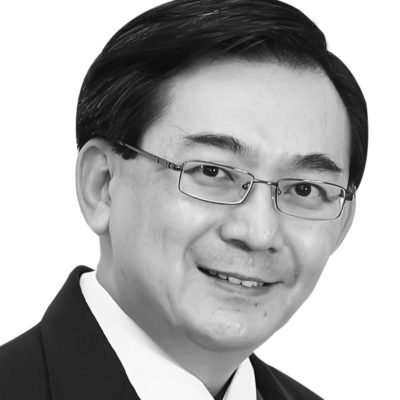
Mr Oliver Tian
Asia Pacific Assistive Robotics AssociationOliver is an Honorary Advisory Mentor of APARA (Asia Pacific Assistive Robotics Association). APARA is a young association founded on the motivation to help users leverage digital technology to augment human capability and potential, with a particular focus on the Ethical and Responsible Use of AI and Robotics applications. In addition, he is also Vice-Chair of the International Alliance of Robotic Association (IARA) and Vice-President of the Global Robot Clusters (GRC). He is also an Honorary Advisor to the AI for Good (Asia) Initiative.

Ben Harris
Director, Newton EuropeBen Harris is a Director at Newton Europe, who specialise in data-driven outcome delivery. Ben’s focus is using data and advanced analytics to make measurable, on-the-ground change happen in complex organisations. During his career, Ben has worked alongside public and private organisations across the globe to deliver impact using data, including in healthcare, government, and logistics.

Dr Philip Inglesant
ORBITPhilip is a Senior Trainer in Responsible Innovation with ORBIT, the observatory for RRI in ICT. Prior to that, he researched Responsible Innovation in quantum computing as part of the Networked Quantum Information Technologies Hub and in trust in online algorithmic systems in the ReEnTrust project, at the University of Oxford
He completed his PhD in the intersection of Human-Computer Interaction and Public Policy at University College London in 2007 and has since worked on areas including innovation in the Future Internet and human and social aspects of information security, at UCL and at the University of Edinburgh.

Helena Webb
ASSISTANT PROFESSOR, SCHOOL OF COMPUTER SCIENCE, UNIVERSITY OF NOTTINGHAMDr Helena Webb is a Transitional Assistant Professor in the School of Computer Science at the University of Nottingham. She is an an experienced socio-technical researcher with expertise across responsible research and innovation (RRI), human-computer interaction (HCI), science and technology studies, and the sociology of technology. She is interested in the ways in which users interact with technologies in different kinds of setting and how social action both shapes and is shaped by innovation. The projects she works on typically seek to identify mechanisms for the improved design, responsible development and effective regulation of technologies. She has a multidisciplinary publication record (e.g., ACM CHI, TOIS, CSCW, Social Media and Society, Discourse and Communication) and has been awarded funding from, amongst others, NIHR, ESRC, EPSRC, GCRF, the ATI and the Foundation for the Sociology of Health and Illness.
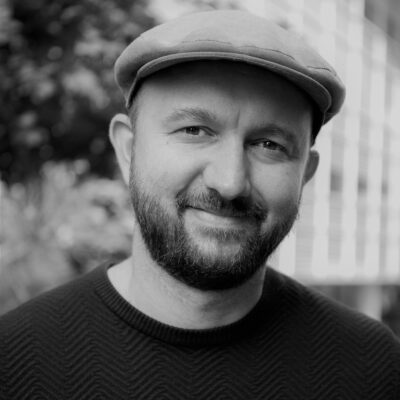
Ben Wagner
ASSOCIATE PROFESSOR, FACULTY OF TECHNOLOGY, POLICY AND MANAGEMENT; DIRECTOR, AI FUTURES LAB, TU DELFTBen Wagner is an Associate Professor of Human Rights and Technology at the Faculty of Technology, Policy and Management and Director of the AI Futures Lab at TU Delft. He is also Professor of Media, Technology and Society at Inholland. His research focuses on the governance of socio-legal systems, in particular human rights in digital technologies, and designing more accountable decision-support systems.

Sam Brown
CO-FOUNDER, CONSEQUENTIAL CICSam Brown is the co-founder of Consequential, a social innovation practice focused on disruption for the common good within the tech sector. She is a thoughtful and creative director, programme designer, and business coach who specialises in complex and systemic change. She works across sectors and industries, connecting organisations and creating threads for change that support a business and technology environment responsible to people and planet. Sam led the programme on responsible innovation at Doteveryone, a responsible technology think tank, creating the responsible innovation practice consequence scanning and contributing to research such as ‘People, Power and Technology: The Tech Worker’s View’. Prior to that, she was a senior business partner in financial technology, collaborating with executives and product teams to deliver award-winning online experiences. Sam is on the Digital Catapult AI Ethics Advisory Group, a Trustee for the Upper Norwood Library Hub, an Aspen Institute UK NextGen AI Leaders Network member, an Impact Mentor for 2 BGV cohorts, and a responsible innovation fellow for the Creative R+D Cluster.
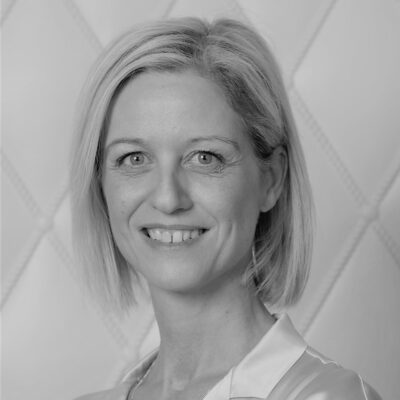
Dr Anne-Laure Cadène
VICE-PRESIDENT, HEAD OF UNIVERSITY PARTNERSHIPS, CAPGEMINI ENGINEERINGAnne-Laure has been with Capgemini since January 2019 and has over 20 years of experience in R&D and innovation. She has held various roles as consultant, business manager, scientific director and research and innovation director in aerospace, automotive, life science and systems domains.
She currently leads the company’s Strategic university research partnerships. She works closely with CTOs, industry leaders, research & innovation ecosystem and academics to build research collaborations to contribute to the advancement of engineering at 3-5 years research horizon.
Passionate by music and arts, sustainability, inclusion and women in engineering, she is also global lead of Capgemini Women in Engineering network.

Dr David Jackson
VICE-PRESIDENT, CTO PRODUCT & SYSTEM ENGINEERING, CAPGEMINI ENGINEERINGDavid is an experienced engineering leader with over thirty years’ experience in the creation of complex and critical systems. He has worked in aerospace, automotive, defence, transport, and energy, in organizations ranging from start-ups to multinationals. He led the architecture team for the VueForge IoT offer, the creation of a trans-national metrics-driven software development organisation, and the subsystem design of a major rail upgrade program. In his current role he provides technical governance and direction in system engineering, product engineering, and functional safety.
